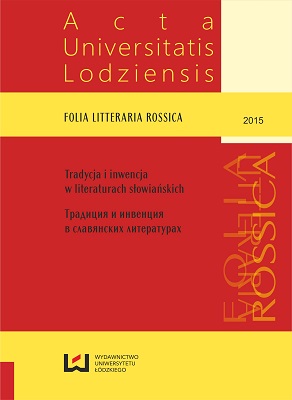Generation: The Model and Dynamics of Change (on the Basis of Works of 19th-Century Russian Authors)
DOI:
https://doi.org/10.18778/1427-9681.S.2015.28Keywords:
generation, generational experiences, 19th century Russian literatureAbstract
The paper presents an attempt to reconstruct a generational model and brings some reflections on the dynamics of its changes. The following conclusions have been drawn from the analysis of a selection of works: – the model of a generation was not age-related, but emerged in the consciousness of Russian writers on the basis of a shared social, cultural and historical experience; – the ways in which individuals make sense of the past and establish generational identities are manifest in their attitude towards the prevailing values and norm systems of older generations, as well as in references to the literary images – in this case particularly to those of the 1840s and 1860s generations, of ‘fathers and sons’ – through acceptance or rejection thereof; – members of the post-1880s generation rejected the legacy of their fathers, without offering anything in return, thus becoming a generation at the crossroads. The turn-of-the-century generation was characterized by an ambivalent attitude towards their predecessors; – the generational model evolved under the impact of historical events, fashionable ideologies and fascinations for art or science, which offered a common generational experience; – the style of life came to be the outward manifestation of generational differences.
Downloads
Downloads
Published
How to Cite
Issue
Section
License

This work is licensed under a Creative Commons Attribution-NonCommercial-NoDerivatives 4.0 International License.












